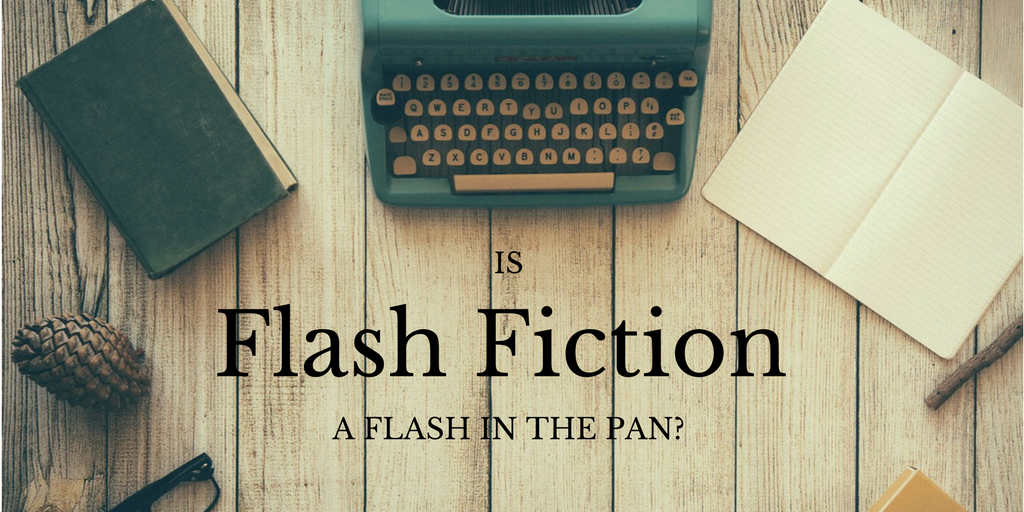|
What is ‘flash fiction’? Well, there’s some difference of opinion on this subject. Some say it’s fiction under 100 words; for others it can be up to 1000 words. The term itself is relatively recent, although the form has been around for decades. Other terms used include ‘sudden fiction’ (although this does tend towards the shorter end of the range) and – my personal favourite – ‘postcard fiction’.
It’s a great form for readers. I love flash fiction for its instant engagement, its sense of immediacy. But don’t let the ‘flash’ part deceive you. These stories can be layered and thought-provoking, containing depth and colour. Flash fiction shouldn’t be read in a flash! For writers too – first-timers, budding, experienced – it’s a form to be embraced. With the rise of the internet the opportunities for publishing flash fiction have increased dramatically. There are journals (both in print and online) which accept submissions of flash fiction. There are several journals dedicated entirely to the form. So, is flash fiction a flash in the pan? Short answer: no! I think it’s a wonderful form that will go from strength to strength. And I’m not the only one who thinks it’s worth celebrating; there’s been a National Flash Fiction Day on 16 May for 5 years now! Hurrah!
0 Comments
 A while ago, I put a shout-out on a forum asking for a recommendation. I wanted a magazine. My requirements were many and varied: it must be up to date on the literary scene; be on top of trends; list events in the literary world; notify me of submission opportunities; contain author interviews and book reviews; provide an occasional focus on particular genres … the list went on. It was a tall order, I admit. And the answer came back that I was asking too much of one magazine. Humph, was my response. I refused to admit defeat. A friend mentioned Mslexia, a magazine for women writers. Hmm, but I’m not really a writer, I said. No really, she said, give it a go. And I haven’t looked back; Mslexia has proved to be everything I was looking for – and much more! Mslexia is a high-quality publication in terms of both content and presentation. Yes, it’s aimed primarily at writers, but it’s a treat for readers and a useful professional tool for editors and anyone else with an interest in the world of publishing. It’s informative, inspiring and up to date. It’s vibrant and fresh. It has verve. I now regard Mslexia as an important weapon in my editorial armoury. If you too love words, give it a go! You won’t be disappointed. Follow @Mslexia on Twitter to get a flavour of things. Oh, and subscribe if you can – there are perks for subscribers!  It’s not a task I could squeeze into my busy editor/mum schedule more than once in a blue moon, but I really believe it can be a therapeutic activity from which you’ll emerge with that sense of satisfaction and serenity that can be so restorative in our high-tech, high-speed world. Over the years my bookcases have been arranged in a variety of ways: by author surname, in rough chronological order, by author first name, and entirely randomly. These different systems are nothing more than an excuse to indulge in rearranging. For those of us who love books, it can be a lovely opportunity to remind ourselves what beauties are lurking, semi-forgotten, on the shelves. A chance to handle (yes, handle; I refuse to believe I’m the only one who loves the feel and smell of books, especially old books!) volumes that we might otherwise leave untouched from one year to the next. And, for me, a chance to reconnect with memories. Many of my books carry specific memories: books associated with school, sixth form, university, holidays, projects, books that have informed my own writing … the list goes on.
But more than all this, rearranging your bookcase could be an inspiration. Sometimes our ideas struggle to be heard over the din of life. If you can make some quiet time, you might just catch that creative whisper once more. So put down your phones, tablets and (certainly for the purpose of this particular exercise) e-readers, ignore the doorbell and start rearranging! Judging a book by its cover … we all do it, don't we? Go on, admit it! The cover is important, after all. We scrutinise it, hoping to glean something of what lies behind – to help us decide whether this is a book we'd like to spend our time reading...
Three years ago this summer, I completed the PTC proofreading course that began my editorial career. As the anniversary approached, I looked again at my business 'cover' and I realised something: it did not reflect what lay behind. I established NB Proofreading in 2013, intending to focus on proofreading only. Then I obtained my first piece of work copy-editing a novel. And since then ... well, most of my time has been spent editing and critiquing fiction. And I've loved it! I feel reconnected with the literary roots I suppressed during a thirteen-year legal career. So it's time for a new ‘cover’: time to project a sense of the creativity that drives what I do. Ta-da! Splendid Stories is born. Have a peek at my new website: www.splendidstories.co.uk. I hope you like the cover – and what lies behind it! |
Nikki Brice
Proprietor of editorial business Splendid Stories. Experienced, professional editor offering creative guidance, developmental editing/critiquing, copy-editing, and proofreading. |

 RSS Feed
RSS Feed